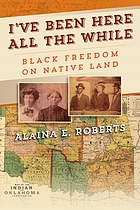Contact the TCC Library
Metro Campus 918-595-7172
Northeast Campus 918-595-7501
Southeast Campus 918-595-7701
West Campus 918-595-8010
Related Topics
Answered By Library Staff Last Updated: Sep 18, 2025 Views: 625
Distinguishing between scholarly and non-scholarly sources (such as articles, books, etc.) is a valuable skill you can cultivate to evaluate the reputation and validity of a source and as well as distinguish the intended audience. It can be hard to tell sometimes what qualifies as a scholarly source, so be sure to check with your instructor about their definition and standards.
The word "scholarly" is sometimes used synonymously with "peer reviewed." All content that is peer reviewed is scholarly, but not all scholarly sources are necessarily peer reviewed. To learn what peer reviewed means, see this FAQ. Many other sources, on the other hand, like most nonfiction books, dissertations, review articles, and etc. are scholarly because of their subject matter and who writes them, but they are only edited. Not peer reviewed.
The book on the left is a popular, non-scholarly book. The one on the right is scholarly. However, depending on the resources required for your assignment and what you are writing about, both could work as sources for any original argument you might be making. It depends on what your instructor allows. Select each to view more information about these books.
The TCC Library has several tools to aid you in finding scholarly content:
- This video explains how to find scholarly articles, but read on for more tips:
- If searching the Discovery Catalog on the Library's homepage, you can limit on the left side to "Articles" and "Peer-Reviewed." An icon of a person with a check mark will appear on identified peer-reviewed results (though you will need to verify that the result is marked correctly). The Discovery Catalog searches a lot of our relevant databases all at once for us.
- For a database example, in Ebscohost databases,on the search screen, you can check the Scholarly (Peer Reviewed) Journals box in the Limit your results options section. This filter removes newspapers, magazines, and other non-scholarly sources.
- You also check a journal title within the database Ulrichsweb to see if the publication is refereed (another term for "peer reviewed"). 1.Search for your journal by title. 2. If there is a referee shirt icon next to your title, it has been labeled as a peer-reviewed journal.
- Watch the TCC's library's YouTube video about the differences among magazines, journals, and newspapers.
In general, consider the audience of the article:
- Is the article written for entertainment or is it informative?
- Would this article appeal to the general population?
- Is it geared towards the academic community?
- Does the article cite any sources at the end, or open with an abstract?
If you answered (mostly) informative, academic, sources are cited, and there is an abstract then you are likely looking at a scholarly article.
Links & Files
- Journals, Newspapers, and Magazines @TCC Library - YouTube Video Opens in new window
- Check before you share Opens in new window
- Media Literacy Research Guide Opens in new window
- Q. What does "Peer Reviewed" mean? Opens in new window
- Q. How can I tell if a journal is refereed or peer reviewed? Opens in new window




